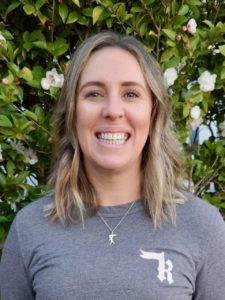Welcome to Russell Street School
 Tēnā koutou nga mātua. Greetings to all parents. Tēnā koutou nga mātua. Greetings to all parents.
For each and every student (and their family), starting school represents the beginning of another important, exciting chapter in their lives. There are new challenges, opportunities and expectations. We welcome you to the Russell Street learning community and invite you to take advantage of the ‘open door’ policy we have. We work hard to ensure that each child has a successful transition to school, giving them the best possible start. I am aware too, that new parents have a lot to take in when becoming involved with a new school. Please do not hesitate to contact me with any queries that you might have. I look forward to getting to know you and your child, and working together to provide the best possible education for him/her. Nick Rate |
  We are pleased to welcome you and your family to our great school. We have an innovative and highly motivated team of junior teachers. A limited number of new entrants can also start directly into Poutokomanawa, our Māori enhanced space. Fabian manages the transition of 5 years into this area of the school. We are pleased to welcome you and your family to our great school. We have an innovative and highly motivated team of junior teachers. A limited number of new entrants can also start directly into Poutokomanawa, our Māori enhanced space. Fabian manages the transition of 5 years into this area of the school.
Our aim is for your child’s start at school to be positive and exciting. We want them to feel a sense of belonging and feel safe and happy right from the start. We look forward to meeting you and hope you will take up some of the many opportunities to become involved in the school community. Please feel free to come and talk with any of the team if you have questions or queries. Kate Baillie & Fabian O’Halloran Transition to School Leads |
|
|
The current transition to school team:
|
||
|
Pre-enrolment Pre-enrolling your child is quick and easy. All you need to do is fill in the Pre-Enrolment Form on our website. Pre-enrolling your child means that we know they are coming and can be prepared for their arrival. If your pre-enrolment is delayed we will work with you in making the move a smooth entry to school but may not have the necessary time for a full set of transition sessions. If you are not living in our enrolment zone, filling in the pre-enrolment form will put your child on the list for any upcoming ballots. |
||
|
Poutokomanawa Poutokomanwa is a Level 3 Māori Immersion learning space within Russell Street School. This is in recognition of the learning environment that includes Tikanga practices, explicit instruction of Te Reo Māori and an infusion of Te Ao Māori throughout while providing a robust learning programme across all curriculum areas in both English and Māori mediums. The Poutokomanawa whānau consists of around 80 children ranging from Year 0-6 with four main Kaiako. You can find us in the Poutama building (Rooms 12-14). We draw on the strengths within our teaching team to ensure the best learning experiences for all tamariki, both the individual and the collective. E hara taku toa, i te toa taku tahi, engari, ki te toa taki tini. Success is not the work of one but the work of many. From 2023, parents and whānau wishing to start their children in Poutokomanawa when they enter school can do so. Please indicate this when you pre-enrol and when the school reaches out to start the formal welcoming and transition process. We cannot always guarantee a place in Poutokomanawa but the earlier you let us know of your wishes, the earlier when you plan for and make it happen. |
||
|
Transition Sessions Transition sessions are periods in the classroom which we encourage your child to attend before they turn five. If you are on the pre-enrolment list, about a month before your child is due to start school, the prospective classroom teacher will make contact and organise with you a series of visits. Scheduled school visits are an extension of our Friday morning Uenuku programme. The actual time and duration is arranged in negotiation with you and depends on the needs of your own child. While visiting, you and your child will be encouraged to take part in our class activities so that you and your child can meet the teacher and children in the classroom, become familiar with the environment, find classrooms of brothers and sisters, become familiar with breaktime procedures and ask any questions you may have. |
||
|
How are New Entrant Classes Organised? At RSS, we have three classrooms that take new entrants. Rooms 1a, 1b take new entrants from the start of the year. Room 1c will open later in the year, around Term 3. If your child starts school and their fifth birthday is before April 1st they are classified as Year 1. If your child starts on April 1st or later they are classified as Year 0. All children with a birthday in April will have their progress monitored during the first three years of school to ensure that this classification is the best one for them. |
||
|
What you need to do: Before the first day of school, perhaps during an Uenuku or school visit, will we send you a link to fill in the formal online enrolment form. Sharon or Rachelle (the office team) can help you with this. We need you to bring a copy of:
The above documents which support the enrolment form can be dropped off to the school office between 9am-4pm weekdays, or emailed to office@russellst.school.nz. |
||
|
Stationery and Hat Please access your child’s school stationery list requirements at Warehouse Statioinery ready for your child’s first day of school. You can shop online, in-store, by phone or you can download a copy of the list. Any bucket hat is suitable to be worn at school. |
||
|
Brain Food Every morning the children have brainfood (i.e. nuts, fruit, vegetables, plain popcorn), brunch, lunch, and a bottle of water. |
||
|
Powhiri/Mihi Whakatau (Formal Welcome) On the first day of every term we have a formal welcome for any new students and families to our community. This is by way of a powhiri or mihi whakatau directly after 9am. This process includes mihi (speeches), waiata (songs) followed by kai (food). If your child begins mid term they will be formally welcomed at the next term’s powhiri. |
||
| Meeting Other Parents – Whānau Evenings
During the year, to build whakawhanāungatanga and get to know each other, the Waka Huia team have whānau evenings at school as each New Entrant class fills up. The children, parents and wider whānau are invited to come along and have a social time. It gives everyone a chance to meet other parents and children and get to know each other a bit better, usually sharing some kai while having a relaxed catch up. |
||
|
Frequently Asked Questions Is there school a school donation? Yes. These help cover the shortfall between the Ministry of Education funds and the actual cost of providing a quality education. This voluntary donation is set at $150 a child per year or a maximum of $200 per family a year. You can pay it all at once or smaller amounts more regularly if that suits, and we’ve got EFTPOS for your convenience. You can also pay it online via Kindo. A tax rebate certificate can be issued by Kindo. We also have an Activity Fee. This covers all class and school events each term. The rate is set at $40 a child a year (or $10 a term). What are the school hours? School officially starts at 8.55am. Children can come into class from 8.30 to settle into their day of learning. Interval (Brunch) is from 10.30 to 10.50am follow by a ten minutes supervised eating time. Lunchtime is 12.35 to 1.15pm, once again followed by ten minutes supervised eating time. School finishes at 3.00pm. What do most children eat for lunch? Most new entrants come to school with too much food or are too excited to eat it independently. Try giving your child a balance of ‘healthy’ and ‘enjoyable’ snacks and include a bottle of water. Can I buy lunches for my child at school? Yes, every Wednesday (Subway) and Friday (Pita Pit) we offer lunch orders. All ordering is done through Kindo. How are children looked after in the playground? There are always two teachers on duty in the playground and one in the office for First Aid. The duty teachers wear hi-vis vest so are easy to spot if any problems arise during breaks. What do I do if my child is sick or is going to be absent? It is important that we know if your child is sick/away. Please phone or email Sharon or Rachelle in the office by 9.15am or use our school app (Hero) to record an absence. We will make contact with the parents of all unexplained absences via text by 9.30 am. If your child is sick at school, we will phone you to arrange for someone to pick them up. If the sickness is due to diarrhoea and/or vomiting, they need to stay home for at least 48 hours after the last symptoms of diarrhoea and/or vomiting. Can I stay with my child during the transition visits? Students under the age of five must be accompanied by a parent or caregiver when attending any transition visits. However, we do encourage parents/caregivers to retreat to the staffroom giving new children a chance to become independent as soon as possible. Discuss with the teacher and decide together what is best for your child. When is the best time to talk to a teacher? Before school is fine, but it can be quite busy. It is a good idea to arrange an appointment when the teacher has plenty of time to spend with you. Just ask. What do I do if I have a concern about how my child is settling into school? Talk to the classroom teacher. All teachers are committed to making the transition as smooth as possible for children. |
||
|
Ideas for Helping with Reading and Writing at Home
|
Ideas For Helping with Maths at Home Counting and recognising numbers
Colours
Shapes
Sorting
|
|
|
Ideas For Supporting your child with School Routines Although there will always be help for your child with these things as they learn, giving your child a sense of independence will help them during day to day classroom life. Arrival at School
Managing their belongings
Dressing
|
||
